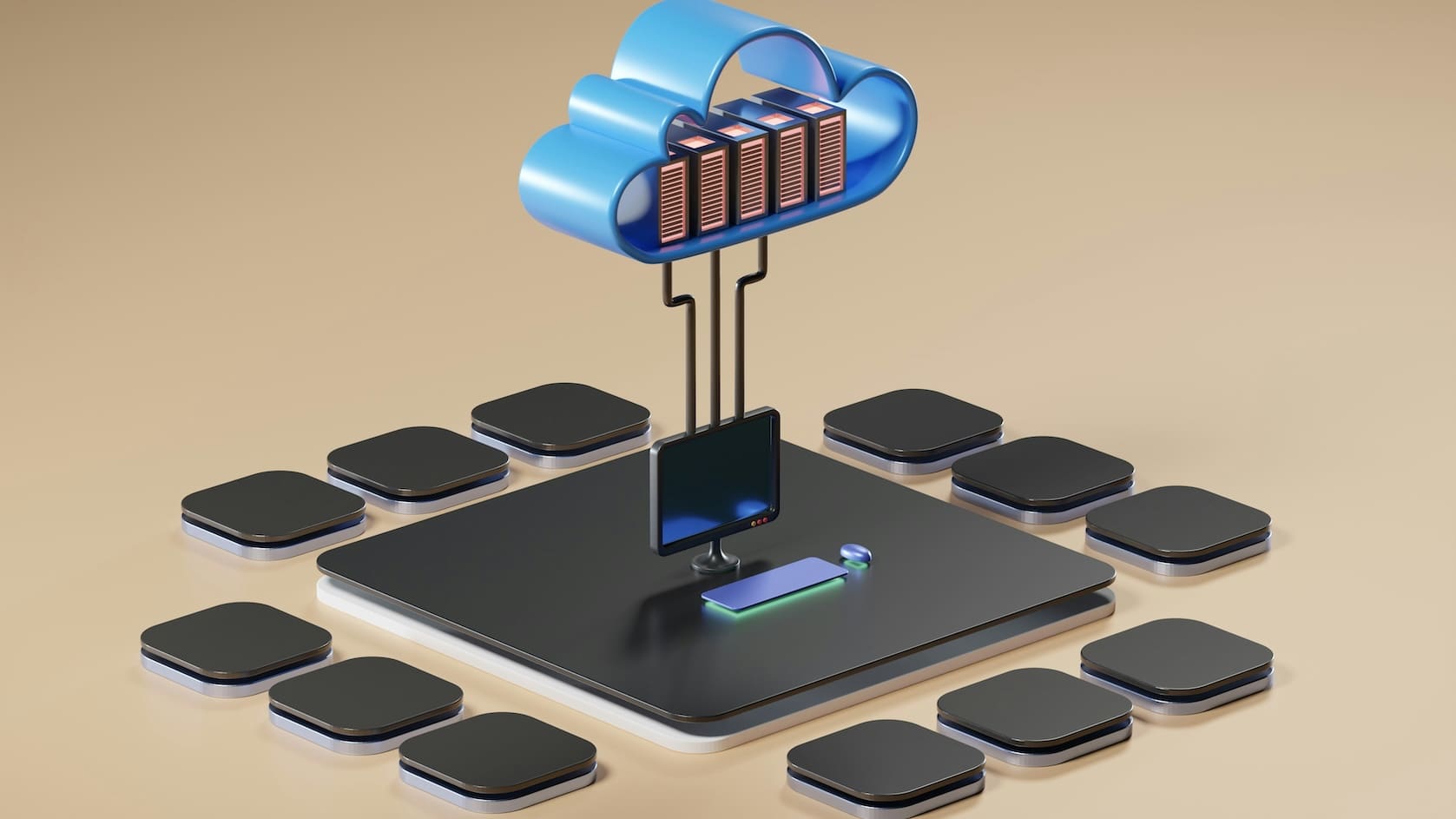The technological revolution has brought forth a concept that, although omnipresent, is not always fully understood: cloud computing or the cloud. In this article, we break down what the cloud is, the types of services it offers, and why it has become an essential tool for both individual users and businesses.
What is the cloud?
The cloud, or cloud computing, refers to the provision of computing services over the Internet. Instead of relying on the local storage and processing of your computer, you connect to a network of remote servers that manage and store these resources. This approach allows you to access data and applications from any device with an Internet connection, offering unparalleled flexibility and efficiency.
To better understand this concept, let’s think about how music was stored in the past: cassettes, CDs, vinyl records, and other outdated media. You needed to physically carry these devices to play your favorite songs. Nowadays, services like Spotify, Apple Music, Amazon Music, and the now-defunct Weblisten allow you to access millions of songs at any time and place thanks to the cloud. This same principle applies to other types of data such as videos, photos, applications, and documents.
Types of cloud
There are several main types of clouds that cater to different needs:
Private Cloud: Exclusive to a single organization, providing greater control over data and personalized security.
Public Cloud: Services offered by third parties (such as Amazon Web Services, Google Cloud, or Microsoft Azure) accessible to any user. They are scalable and cost-effective, ideal for businesses and individuals.
Hybrid Cloud: Combines public and private clouds, allowing companies to flexibly manage their specific technological needs.
Serverless Computing: Allows developers to run code without managing servers. Cloud providers manage the infrastructure and automatically scale resources as needed. Examples include AWS Lambda and Google Cloud Functions.
Models of cloud services
The cloud offers different service models tailored to various needs:
Software as a Service (SaaS): Provides software over the Internet. Examples include Google Workspace, Microsoft Office 365, and Netflix. You don’t need to install anything; you simply access and use the software online.
Platform as a Service (PaaS): Offers platforms that allow developers to create applications. It includes tools for development, testing, and deployment. Examples are Google App Engine and Heroku.
Infrastructure as a Service (IaaS): Provides IT infrastructure (such as servers, storage, and networks) over the Internet. Companies like AWS and Azure allow organizations to rent resources instead of buying and maintaining them.
Why should you use the cloud?
Flexibility and Scalability: The cloud allows you to adjust resources according to your needs, scaling up or down without major investments in infrastructure.
Accessibility: Access your data and applications from anywhere and any device, facilitating remote work and online collaboration.
Reduced Costs: Pay only for what you use, avoiding the fixed costs associated with purchasing and maintaining your hardware.
Security: Cloud service providers invest in advanced security measures to protect their customers’ data, although it is crucial to choose a trusted provider.
Cloud service providers
The cloud market has several prominent providers:
Amazon Web Services (AWS): The leader in cloud services, offering a wide range of services from storage to artificial intelligence.
Google Cloud Platform (GCP): With Google’s robust infrastructure, it is ideal for data analytics and machine learning.
Microsoft Azure: Integrated with Microsoft services, it is popular among companies already using Microsoft products.
Alibaba Cloud: Dominant in Asia, it offers services similar to AWS and Azure.
IBM Cloud: Known for its focus on enterprise and artificial intelligence solutions.
Stackscale: Provides secure, high-performance, reliable, and competitive cloud solutions to businesses. As a Private Cloud and IaaS provider, the most important resources are exclusively used for each project, ensuring maximum security, privacy, and performance.
Oasixcloud: The cloud and data center division of Grupo Aire, offers innovative solutions for the digital transformation of companies and public entities. They provide public, private, and hybrid cloud services, hosting, backup, disaster recovery, and connectivity in data centers in Spain, Portugal, the USA, Germany, the Netherlands, and the UK.
Oracle Cloud: Offers a complete suite of SaaS applications for ERP, HCM, and CX, as well as an autonomous database infrastructure. Oracle Cloud is known for its robust security and performance in enterprise applications.
The cloud democratizes services
The cloud has leveled the playing field for businesses of all sizes. A small startup with two employees can utilize the same technological resources as a multinational corporation, paying only for what they need. This has fueled innovation and allowed new companies to compete in the global market.
The cloud is not just a technological trend; it is a revolution in how we store, process, and access information. Whether for personal or business use, adopting cloud services offers significant advantages in terms of flexibility, costs, and accessibility. Understanding and leveraging these advantages is key to staying competitive in today’s digital world.

